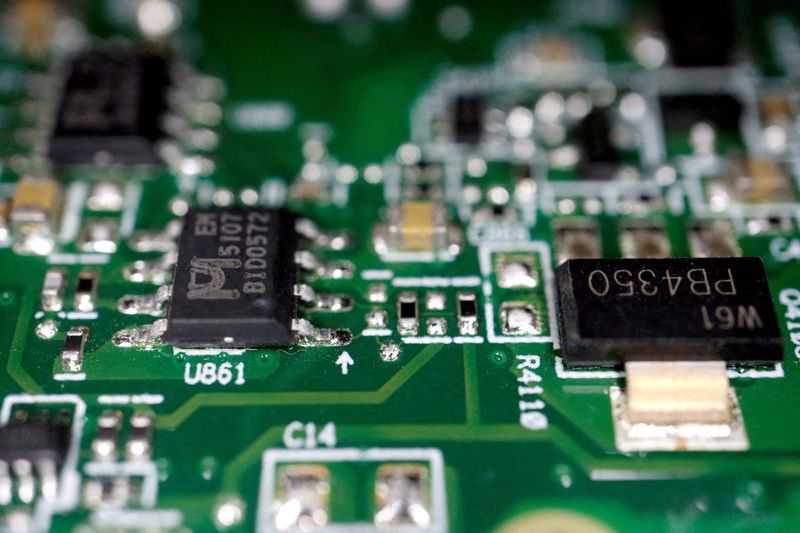
(Reuters) – China warned on Thursday it would take “necessary actions” to protect Chinese firms if the U.S. escalated chip control measures, following reports that the Biden administration could unveil new export restrictions as soon as this week.
Last week, the U.S. Chamber of Commerce informed members in an email that the Biden administration was considering adding as many as 200 Chinese chip companies to a trade blacklist, which would prevent most U.S. suppliers from shipping to them.
Asked about the report at a regular news conference on Thursday, commerce ministry spokesperson He Yadong said China “strongly opposes” what he said was the U.S. broadening the concept of national security, and the “abuse” of control measures targeting Chinese companies.
The U.S. has been tightening controls over semiconductors amid fears that China could use advanced technologies to strengthen its military.
“These actions severely disrupt the international economic and trade order, destabilise global industrial security, and harm the cooperative efforts between China and the U.S., as well as the global semiconductor industry,” He said.
“If the U.S. insists on escalating control measures, China will take necessary actions to resolutely protect the legitimate rights of Chinese enterprises,” he added.
Bloomberg reported on Thursday that the Biden administration was considering additional curbs on the sale of semiconductor equipment and AI memory chips to China.
Citing people familiar with the issue, it said the latest proposal would sanction fewer Huawei suppliers than initially planned, notably excluding ChangXin Memory Technologies, which is trying to develop AI memory chip technology.
The proposal also targets two chip factories owned by Semiconductor Manufacturing International Corp., Huawei’s partner, and more than 100 Chinese companies making semiconductor manufacturing equipment, rather than the chips themselves, according to the report.
Biden is due to leave office in January, and there are concerns that President-elect Donald Trump’s promise to implement additional tariffs on China could trigger a trade war.
Trump pledged this week to impose an additional 10% tariff on all imports from China, above any existing tariffs.
He accused Beijing of not doing enough to stop the flow of illicit drugs into the U.S. from Mexico.
China’s commerce ministry said on Thursday the tariffs would not resolve U.S. internal issues.






